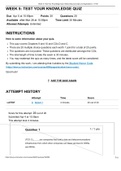Jim
Murder
Jim (J) is likely to be held liable for Dorian’s (D) murder. Firstly, J satisfies the actus
reus of murder, which is to cause death. Indeed, J’s act of punching D was a but-for cause of
D’s death (White) – but-for the punches, D’s teeth would not have loosened and suffocated
him. Moreover, J’s act of punching D was a substantial and operating cause of D’s death
(Hughes). Secondly, J satisfies the mens rea requirement for murder, which is to intend to
cause death or grievous bodily harm (GBH), as per Hyam. Indeed, by punching D, J intended
to cause him GBH.
J could potentially escape liability by resorting to a defence. He could firstly rely on
loss of control under s 54 and 55 of the Coroners and Justice Act 2009 as a partial defence.
Indeed, J felt a ‘surge of extreme anger’ when he punched D (s 54[1a]). Furthermore, even
though D bullied J when they were children, the bullying could be considered a qualifying
trigger– that is, J had a justifiable sense of being seriously wronged by things done or said by
D (s 54[1b] and s 55[4b]). Ultimately, however, even if a qualifying trigger is satisfied, it is
unlikely that a person of J’s sex and age, with a normal degree of tolerance and self-restraint
in the circumstances, might have reacted in the same or in a similar way as J did ( Section
54[1c]). Secondly, J could try the partial defence of diminished responsibility, as he was
arguably suffering from an abnormality of mental functioning resulting from a recognised
medical condition – his depression. However, it would be a stretch to say that his condition
substantially impaired his ability to understand his conduct, form a rational judgment or
exercise self-control (Golds). Therefore, diminished responsibility does not apply in J’s case.
Since both partial defences would fail, J could try relying on insanity. However, his
depression caused by D’s bullying is unlikely to be enough to support a defence of insanity
(M’Naghten). Therefore, both defences fail, and J is liable for murder.
Conspiracy
J is liable for conspiracy to commit battery contrary to s 1 of the Criminal Law Act
1977 (CLA). Indeed, forcing Dorian to chew on an old smelly sock constitutes battery as it is
unlawful, non-consensual touching (Fagan) with the intention to do so (Duff’s test of
Murder
Jim (J) is likely to be held liable for Dorian’s (D) murder. Firstly, J satisfies the actus
reus of murder, which is to cause death. Indeed, J’s act of punching D was a but-for cause of
D’s death (White) – but-for the punches, D’s teeth would not have loosened and suffocated
him. Moreover, J’s act of punching D was a substantial and operating cause of D’s death
(Hughes). Secondly, J satisfies the mens rea requirement for murder, which is to intend to
cause death or grievous bodily harm (GBH), as per Hyam. Indeed, by punching D, J intended
to cause him GBH.
J could potentially escape liability by resorting to a defence. He could firstly rely on
loss of control under s 54 and 55 of the Coroners and Justice Act 2009 as a partial defence.
Indeed, J felt a ‘surge of extreme anger’ when he punched D (s 54[1a]). Furthermore, even
though D bullied J when they were children, the bullying could be considered a qualifying
trigger– that is, J had a justifiable sense of being seriously wronged by things done or said by
D (s 54[1b] and s 55[4b]). Ultimately, however, even if a qualifying trigger is satisfied, it is
unlikely that a person of J’s sex and age, with a normal degree of tolerance and self-restraint
in the circumstances, might have reacted in the same or in a similar way as J did ( Section
54[1c]). Secondly, J could try the partial defence of diminished responsibility, as he was
arguably suffering from an abnormality of mental functioning resulting from a recognised
medical condition – his depression. However, it would be a stretch to say that his condition
substantially impaired his ability to understand his conduct, form a rational judgment or
exercise self-control (Golds). Therefore, diminished responsibility does not apply in J’s case.
Since both partial defences would fail, J could try relying on insanity. However, his
depression caused by D’s bullying is unlikely to be enough to support a defence of insanity
(M’Naghten). Therefore, both defences fail, and J is liable for murder.
Conspiracy
J is liable for conspiracy to commit battery contrary to s 1 of the Criminal Law Act
1977 (CLA). Indeed, forcing Dorian to chew on an old smelly sock constitutes battery as it is
unlawful, non-consensual touching (Fagan) with the intention to do so (Duff’s test of


